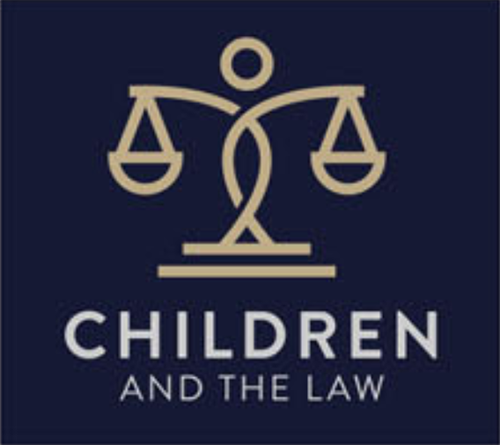States reconsider the permanent sanctions of child abuse registries

This feature sidebar is part of the ABA Journal's Children & the Law series exploring children's law and juvenile justice.
Just one phone call accusing someone of child abuse, whether it turns out to be true or not, can mark that person for life, slapping them with a host of collateral consequences outside of the criminal justice system.
That’s what parents, caregivers and community organizations are asking a state court to consider in A.W. v. Commonwealth of Pennsylvania, which asserts that the state’s ChildLine and Abuse Registry is unconstitutional.
The case is part of a trend in which some states are taking hard looks at their child abuse registries, including revised limitations in New York and a registry repeal in Georgia, where there was no differentiation between abuse and neglect.
“You could be put on the [Georgia] registry for running into the store while you left your child in the car. It was the same as if you committed serious physical or sexual abuse against the child,” says Tom Rawlings, CEO of Child Welfare & Justice Transformation in Atlanta.
The growth of abuse registries
In federal fiscal year 2021, more than 1,800 children died from abuse and neglect, according to the U.S. Department of Health and Human Services. But 600,000 victims of child abuse and neglect were identified from screening more than 2 million reports to child protective services—indicating an overwhelming number of unsubstantiated calls.
“Registries end up really harming families in terrible ways that have been very much under the radar,” says Chris Gottlieb, the director of New York University School of Law’s Family Defense Clinic. “Millions and millions of people are on them. It’s a parallel universe, a parallel set of records.”
Related feature: Parental Penalties: Collateral consequences reverberate through families long after sentences are served
State child abuse registries grew out of a 1960s movement to help doctors and social service organizations track serious physical abuse. In the 1970s, the federal government added to the movement’s momentum by offering financial incentives for enhanced data collection and case management.
Over time, requirements for criminal background checks grew, including Congress’ mandate that registry data be used to screen all child care providers.
‘Have to be careful’
Who can access these registries and what they will see has continued to evolve and differs by state. Many potential employers can access the lists, “even though these aren’t criminal allegations, they aren’t criminal convictions,” says Colleen Henry, an associate professor of social work at Hunter College in New York City who researches registries.
When government agencies or licensing entities find someone on the registry, they can exclude that person from working in day care, in health care or in government, she adds. Poor women, many Black, are disproportionately investigated, research shows, denying them access to many jobs.
“We have to be careful that the records are not used for other purposes that aren’t about serving that family, helping the family, meeting their needs, or assessing the risk that might be in the family based on past history,” Henry says.
What gets reported has changed too. “Now most of the calls have nothing to do with abuse; they have to do with neglect, which is broadly construed and very often poverty-related,” says Gottlieb, a member of the ABA National Alliance for Parent Representation Steering Committee.
Each state handles abuse cases through its child protection agency. Generally, when a tip comes to a state’s hotline, a caseworker, who typically has no legal training, interviews the accused perpetrator, victim and others, then determines whether the case is substantiated.
“Obviously, in all jurisdictions, strong allegations of sex abuse are referred. Some physical abuse cases will go to law enforcement,” Gottlieb adds. Separate investigations follow. But since many calls are neglect, based on causes like mice infestation or missed doctor’s appointments, “the majority are not being reported to law enforcement,” she adds.
Due process problems
Around the country, prosecutors, advocates and parents cite a list of due process issues with various state registries, including:
• In many states, names of those involved in substantiated cases automatically end up on the registry—even without a criminal trial or conviction.
• There is no right to counsel to help with the sometimes-Byzantine regulations since the procedures are typically in administrative courts, outside of the criminal justice system.
• Many on registries are poor and unable to pay for legal services, says Brandon DeShields, a staff attorney at Community Legal Services of Philadelphia.
• Some people on these lists don’t even know they have the right to appeal, Henry says. Others don’t even know they are on the registry, DeShields says. Those listed are given a short period—sometimes less than 20 days, sometimes more than 90—to appeal the charges. Sometimes, the notification is sent via mail to an incorrect address. In Pennsylvania, if the accused misses the appearance deadline, they are on the registry for life.
State moves
In A.W. v. Commonwealth of Pennsylvania, the plaintiffs state those labeled as child abusers are not given a chance to first defend themselves at a hearing, violating due process and the right to reputation under the commonwealth’s constitution.
A Pennsylvania Department of Human Services spokesperson declined to comment on the pending case.
That case follows adjustments in 2022 to New York’s Statewide Central Register of Child Abuse and Maltreatment. Previously, those who were accused stayed on that registry for up to 28 years; now, records are sealed for cases of neglect or maltreatment after eight years.
In 2020, Georgia’s legislature unanimously repealed its child abuse registry. The problematic system, resurrected in 2016 after being declared constitutional in 1998, proved unpopular and unworkable for both prosecutors and defense attorneys.
Good intentions gone awry?
No research proves that child abuse registries protect the general population, Henry says.
Concerns about the registries and their consequences echo around the country.
Child welfare registries were “never intended to be an indication, as with a sex offender registry, that a person had been convicted of anything,” Rawlings says. “It’s an idea that that was perhaps well-intentioned, but in practical terms and due process and fairness terms, it just is not working out.”
Write a letter to the editor, share a story tip or update, or report an error.


